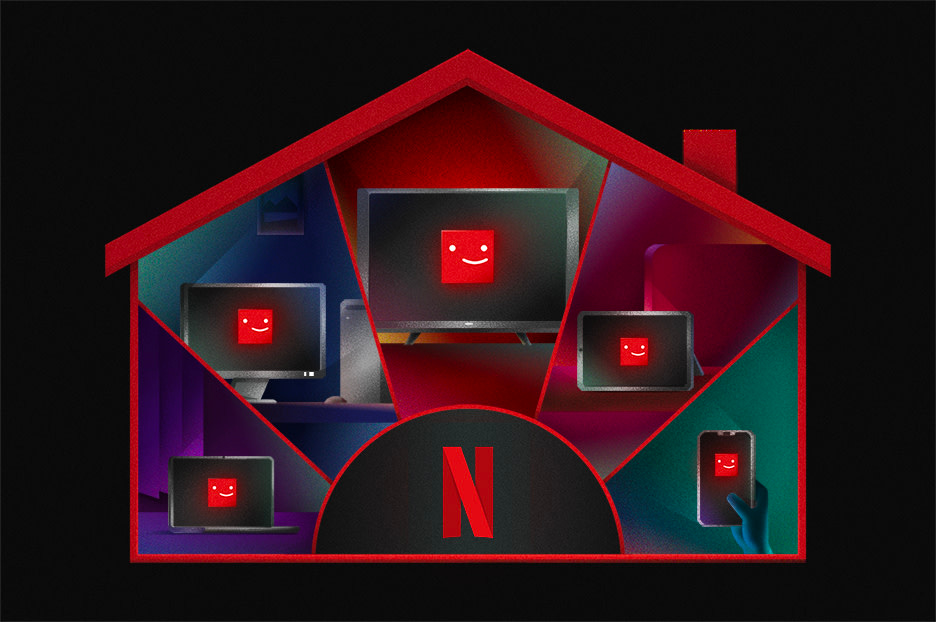Netflix password-sharing crackdown will cost you an extra $7.99 a month
Netflix thought password sharing was cool in 2017 – now in 2023 it says it's meant for 'you and people you live with – your household'

The Netflix password-sharing crackdown in the US that we said was coming but was delayed is finally rolling out to subscribers today, and it means people outside of your household will start costing you money every single month.
➡️ The Shortcut Skinny: Netflix password-sharing finale
📺 Netflix will make you pay for “Extra members” outside your household
💰 $7.99 per “extra member” – capped at 1 or 2 single-profile members
🔐 Its password-sharing crackdown is meant to boost lost subscriber revenue
🙅♂️ No longer cool: back in 2017, Netflix thought password sharing was great
Netflix “extra member” price
Netflix “extra members” will cost $7.99 per month billed to the primary Netflix account holder. This is a smart play because it puts the onus entirely on adult account holders to squash hangers-on – think: grown-up kids outside of their parent’s household and ex-partners who still have their login information – knowingly or unknowingly.
In an email sent to members today and on its official blog, Netflix said quite bluntly that “Your Netflix account is for you and the people you live with – your household.” In the near future, if your IP address doesn’t match that of the primary account holder’s IP, you may be locked out – unless you get crafty (more on that below).
The price of $7.99 per month per extra member is cheaper than the $15.49/mo for the Netflix standard plan and far cheaper than the $19.99/mo for the top-tier 4K Ultra HD Premium plan (there’s no extra member benefit for those subscribed to Basic and Basic with Ads). But these extra members" don’t exactly have unlimited access.
Netflix extra member limitations
There are limitations on how many people can be added outside your household. The Netflix standard plan will only be able to add one extra member with a single profile, while the premium plan can add two extra members each with a single profile. If it were capped, people would resell “Extra Member” seats to their friends and family.
That extra member will be able to stream content on any device, but on one device at a time and download titles on one phone or tablet at a time, says Netflix. The extra member will also only have one siloed-off profile and cannot create additional profiles.
Workarounds to Netflix’s password crackdown
There are bound to be workarounds to today’s password-sharing crackdown. Deep in the Netflix Help FAQ, the company mentions that laptops, phones and tablets won’t penalize you if you’re traveling outside of your primary household’s IP address.
It’s only if you have a second home or travel to a location frequently (like an office) that you’ll have to do a monthly check-in with your device at the main household. That opens you up to using a mobile device to stream content using a rotating IP or visiting the primary account holder’s home once a month.
Why Netflix’s password-sharing crackdown is here
It’s all about the 100 million households that Netflix estimates share passwords instead of paying. Even with workarounds, Netflix is going to profit from binge-watchers who want to easily stream its shows from a connected TV (set-top boxes, smart TVs and most video game consoles aren’t exempt from household IP rules). Workarounds using a phone, tablet or laptop aren’t very convenient.
The end of Netflix password sharing isn’t a surprise – the warning signs were always there as its competition began to nip at its numbers – HBO Max (now called Max), Disney Plus, Hulu and newcomers like Paramount Plus and Peacock.
Netflix lost $50 billion in a single day in 2022 when it reported a 200,000 subscriber loss and predicted another 2 million would flee in mid-2022 (it was only 1.3 million subscribers lost in some good-ish news).
We’ll see how many people cancel their Netflix subscription vs pay $7.99 per month during its next quarterly earnings. Netflix Basic with Ads at $6.99 is always an option if you can stand Full HD 1080p quality for the “vast majority” of Netflix content.



